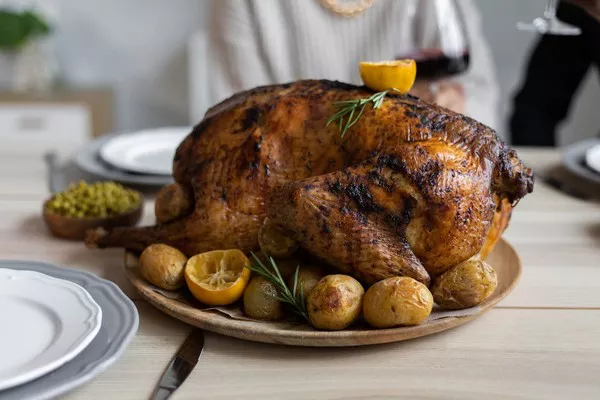As the upcoming holidays herald the onset of the most ambitious cooking and baking season of the year, The New York Times Food and Cooking team steps forward to assist culinary enthusiasts in their endeavors. In a recent special Thanksgiving section, brimming with recipes and tantalizing photos, the team unraveled the juicy secrets behind the meticulous craft of food styling.
When it comes to showcasing an apple pie with a meticulously crafted lattice-top crust, a perfectly plump turkey, or gooey baked macaroni and cheese that oozes in all the right ways, the unsung hero behind the lens is the food stylist. Their role extends beyond making a meal visually appealing; it’s about creating an image that is both aspirational and approachable.
The journey of a food stylist commences with the assignment of a recipe. Armed with insider knowledge on the best ingredient sources, a food stylist embarks on a quest to gather every item on the shopping list, forging relationships with bakers, butchers, farmers, and fishmongers. Familiar with every aisle at Whole Foods and well-versed in the specialty stores that offer out-of-season or rare ingredients, the food stylist’s preparation is meticulous.
The stylist’s duties extend beyond shopping. They meticulously follow the recipe, often executing it more than once to ensure perfection. After the cooking is complete, the stylist artfully arranges the dish for the photoshoot. While some minor tricks may be employed to enhance the visual appeal, the ethos of The New York Times demands that the dishes appear with minimal manipulation. The aim is to strike a delicate balance — presenting food that is both aspirational and approachable. If a dish appears too perfect, it risks intimidating readers, deterring them from attempting to recreate it.
Simon Andrews, a food stylist, emphasizes the importance of making every dish relatable. He remarks, “Everybody should be able to see a photo of a dish and think, ‘Yeah, I can give that a shot.'”
The article highlights four recent Thanksgiving recipes along with insights from food stylists, providing a deeper understanding of the craft.
Green Bean Casserole:
In the Green Bean Casserole recipe, Simon Andrews aimed to capture the saucy, savory finish of the dish by presenting it with a chunk scooped out. Messiness, in this case, adds to the approachability, as Andrews notes, “A little bit of a mess, a couple of drips, goes a long way to make something feel more approachable and less precious.”
Deep-Fried Turkey:
Stylist Cyd Raftus McDowell faced the challenge of finding a turkey without embedded thermometers for the Deep-Fried Turkey recipe. Setting up a rig in her front yard for deep-frying, McDowell enlisted help to safely remove the turkey from the oil vat for temperature checks.
Perfect-Looking Pies:
Laurie Ellen Pellicano reveals the unsung hero of achieving a perfect-looking pie crust – tinfoil. Using tinfoil sleeves and cover-ups during the baking process, she masterfully controls browning on specific areas, acknowledging that, although not foolproof, it ensures a flawless appearance for the photoshoot.
Easy Thanksgiving Turkey:
For Claire Saffitz’s Easy Thanksgiving Turkey, Simon Andrews seasoned and refrigerated the bird overnight, creating a crispy skin that photographed well. The key to the moist appearance of the meat was cutting and plating the turkey much earlier than one would at home, showcasing the stylist’s understanding of the camera’s perspective.
In essence, the article unveils the meticulous journey behind the lens, emphasizing the artistry, skill, and attention to detail that food stylists bring to the table. Each photograph is a testament to the dedication of these unsung heroes who transform recipes into visual masterpieces, inviting readers to embark on their culinary adventures with confidence and relish.

